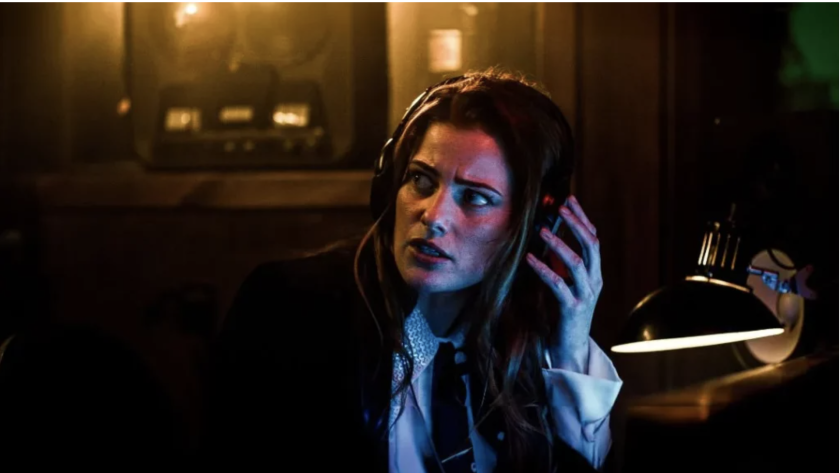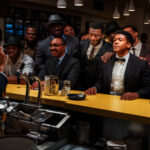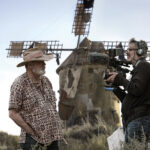Ed Lahner reviews ‘Warhol’, a thriller set in London that provides a sharp social commentary on the digitalisation of urban life.
“In the future, everyone will be world-famous for 15 minutes.” – Andy Warhol
As director Adam Ethan Crow introduces his nominee for the Best UK film category at Raindance, he makes sure to thank the “family of filmmakers” that made this moment possible. With a shoestring budget and a constrained filming period of only 11 days, Warhol is the definition of a film that is more than the sum of its parts. I left the cinema with a pertinent commentary about our digital age, bursting with optimism for the future of independent filmmaking.
Set in the unnerving liminality of the London night, Warhol is an urban thriller made up of three storylines that expose its audience to a dark contemporary underbelly of the capital that operates as the rest of the city sleeps: a scared teenager stuck in the perpetual cycle of postcode warfare interacts with a homeless man on the streets, three individuals spend hours keeping their hands on a car to win much-needed money, and an infamous radio host dances around the tightrope of societal conformity with his controversial, anti-woke tirades. Crow gives himself an almighty directorial challenge in attempting to develop each storyline separately whilst simultaneously finding ways to bring them together to give his audience one broader message to take home with them.
For me, the best way to watch and enjoy the film is by looking at the bigger picture. I tried to look beyond the ostensibly surface-level storylines of gang member Nile and those trying to win the car, instead focusing on how they intertwined with and reinforced the captivating words of radio host Dave Dawson (Corey Johnson) who metaphorically and quite literally steals the show! Effectively an American broadcasting outcast, Dawson uses his provocative diction to toy with the radio producers and thrill his audience with taboo topics. He posits himself as a straight shooter; someone not afraid to say what’s on his mind and happy to play devil’s advocate irrespective of the argument thrown at him.
Most significantly, Dawson blurs the lines of reality and entertainment to devastating effect in the film, with Crow offering a brief insight into the host’s dysfunctional personal life which has resulted in a general lack of accountability: another woman working for the station reveals she is pregnant with Dawson’s child and rather than offering support, he attempts to manoeuvre himself away from this responsibility. Yet amidst a multitude of snappy and goading remarks, Corey Johnson delivers an excellent monologue on unreciprocated love in response to a radio call which explains so much about the character of Dave Dawson and why he behaves the way he does. It brings more nuance as the moral pendulum swings into a more balanced position, encouraging the audience not to simply antagonize the film’s protagonist.
Warhol is the product of an amalgamation of real-life and cultural influences. Heating the pan with red-hot tension, Crow throws in Andy Warhol’s 15 minutes of fame concept, a dash of Brian De Palma’s Blow Out (1980) and the tragic 2013 case of London nurse Jacintha Saldanha as the base of his recipe. The result is a fiery mouthful of hard truths about our digital epoch that we are forced to swallow. Whilst the storylines weren’t as cohesive as I would have liked and the dialogue wasn’t always captivating enough to make up for the slow pacing and lack of action, the last 15 minutes are absolutely scorching as they ferociously hammer home the film’s wider commentary. It’s a shocking and unpredictable ending which I won’t spoil, but Dawson does leave us with some really poignant Nietzschean introspection; “we are staring into the abyss, and there’s a camera pointing back at us.” It’s imperfect filmmaking which is audacious at times, yet there is something so commendable about an independent director with limited resources going full throttle to make a film that has the capacity to start an important discourse.




